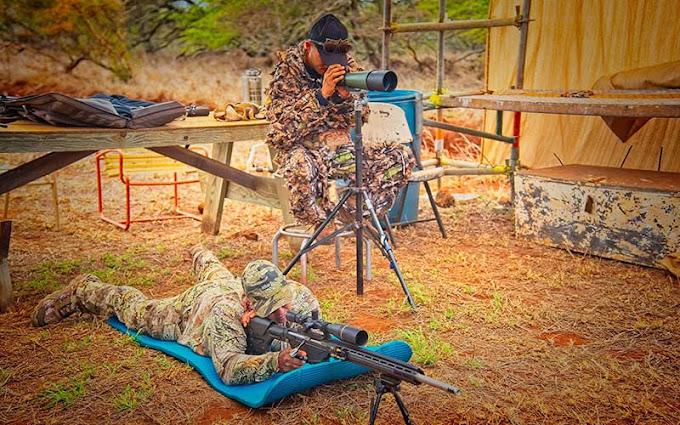
Hawaii Hunting Regulations: What You Need to Know
At Kaluakoi Outfitters, we guide hunters across Kauai and beyond. Every hunter asks the same first question: what are Hawaii hunting regulations?
The answer matters. Hawaii’s wildlife, forests, and traditions deserve respect. The laws protect all three.

What are the Hawaii hunting regulations?
Hawaii has strict hunting regulations. The Department of Land and Natural Resources (DLNR) enforces them. Each island has its own details, but the foundation stays the same.
A license is required.
Game species are defined.
Seasons follow set calendars.
Permits control access.
Fail to follow the rules, and you face fines or worse. Know the system before you step onto the land.
Do I need a license to hunt in Hawaii?
Yes. Hawaii hunting regulations require that every hunter must hold a valid license.
Resident licenses go to Hawaii residents with proof of address.
Non-resident licenses are available for visitors.
You can buy a license online or through approved vendors on the islands. If you are new, you must show proof of completing a hunter education course. Hawaii accepts many courses from other U.S. states.
At Kaluakoi Outfitters, we assist guests with the paperwork. Our guides ensure you walk in with a license in hand.
What animals can you legally hunt in Hawaii?
Hawaii’s game list includes both mammals and birds. The islands never had native land mammals, so most species are introduced. This includes:
Feral pigs
Feral goats
Axis deer (on Maui, Molokai, Lanai)
Mouflon sheep (on Hawaii and Lanai)
Game birds (pheasants, francolins, doves, turkeys, quail)
Rules vary by island. Some animals fall under year-round control hunts, especially invasive species that damage forests. Other animals follow specific hunting seasons.
Know the species before you plan your trip. For example, axis deer on Molokai often require special draws. Feral pigs on Kauai fall under more open rules.
Where can you hunt legally in Hawaii?
Hunting lands in Hawaii fall into two main groups:
Public hunting areas
Private land
Public areas include forest reserves, game management areas, and designated hunting units. DLNR maps mark these clearly. Each island has zones with unique rules.
Private land requires written permission. Many ranches and estates on Kauai, Molokai, and Lanai allow guided hunts. We operate under private land agreements, giving clients access to exclusive grounds.
Can you hunt in Hawaii’s state parks or forests?
National parks are off-limits. State parks are also closed to hunting. But state forest reserves and wildlife sanctuaries may open sections for hunting.
Examples include:
Kauai’s Na Pali-Kona Forest Reserve (pig and goat hunting).
Maui’s Haleakala Forest Reserve (axis deer control).
Big Island’s Mauna Kea Forest Reserve (sheep and goat hunting).
Multi-use areas demand caution. Hikers, campers, and birdwatchers share the land. Always follow safety rules. Blaze orange clothing is required in many zones.
What weapons and gear are allowed in Hawaii hunting?
Hawaii sets clear limits on weapons.
Rifles: Allowed in most rifle seasons. Caliber restrictions may apply.
Shotguns: Common for bird hunts.
Handguns: Limited use, with strict oversight.
Archery: Popular across all islands. Crossbows require permits.
Muzzleloaders have dedicated seasons. Hunters must follow state requirements for powder and loading methods.
Gear rules matter as well. Blaze orange often becomes mandatory in mixed-use areas. DLNR enforces safety rules for protective equipment.

How do Hawaii hunting rules protect the environment?
Hunting laws in Hawaii do more than regulate people. They protect forests, watersheds, and cultural sites.
Conservation goals: Rules limit over-harvest.
Invasive species control: Pigs and goats destroy native forests. Controlled hunting reduces the damage.
Cultural respect: Many lands hold sacred meaning. Regulations protect both wildlife and heritage.
Hunting in Hawaii balances tradition with sustainability. Without rules, invasive animals would destroy entire ecosystems. With rules, hunters support conservation.
At Kaluakoi Outfitters, we stress this balance. Our guided hunts provide challenge, adventure, and stewardship.
Why Kaluakoi Outfitters emphasizes regulations
We know the thrill of a hunt. We also know the importance of order. Regulations keep Hawaii’s natural world alive. They protect hunters as well as wildlife.
When clients hunt with us, they gain more than trophies. They gain knowledge of Hawaii’s landscapes, species, and traditions. We navigate the legal details, so guests focus on the hunt.
Key Takeaways for Hunting Regulations in Hawaii
A license is always required.
Game species include pigs, goats, deer, sheep, and birds.
Seasons and bag limits vary by island.
Some hunts require permits or lotteries.
Public and private lands have strict rules.
Weapons and gear face clear regulations.
Youth hunters must meet age and education requirements.
Conservation lies at the heart of Hawaii’s system.
Hawaii hunting regulations can seem complex. But with the right guide, they become clear. At Kaluakoi Outfitters, we stand ready to make every hunt both legal and memorable.




